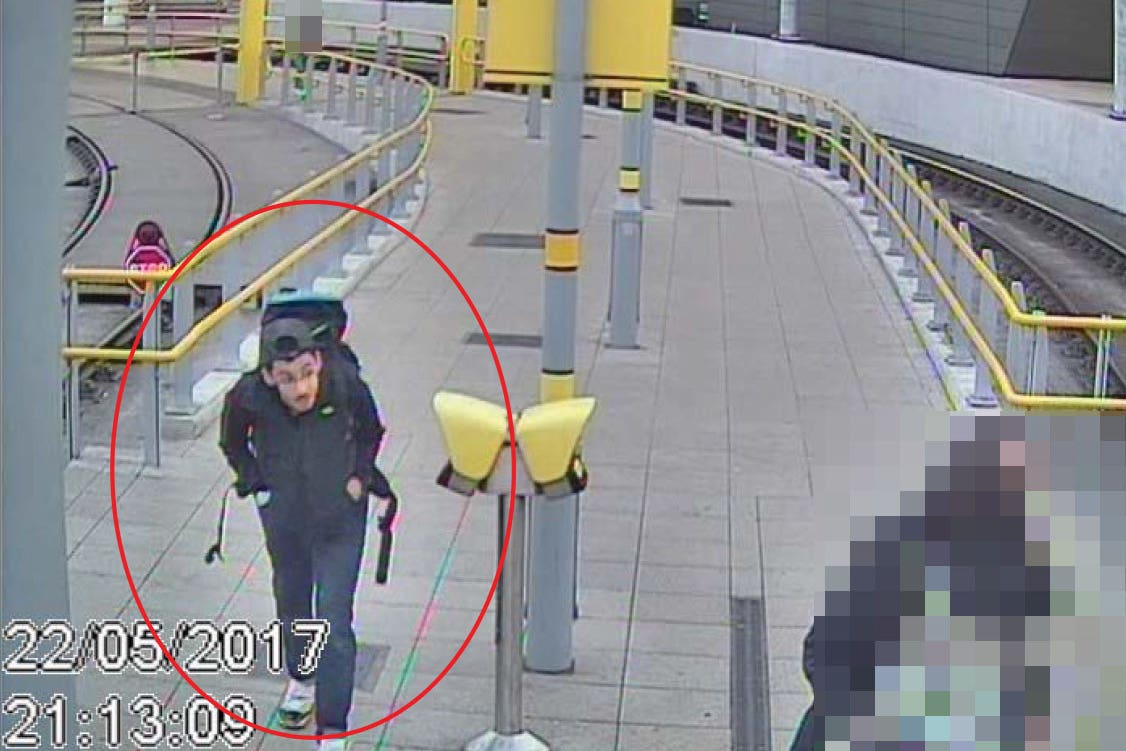‘Missed opportunities’ laid out in final report on Arena bombing
Action earlier by MI5 ‘may have led to Salman Abedi’s activities being uncovered’ – report.

The significant “missed opportunities” to take action that might have prevented the deadly Manchester Arena terror attack were laid out in the final report of the lengthy public inquiry into the atrocity.
Sir John Saunders, chairman of the inquiry, in Volume III of his report, dealing with the radicalisation of suicide bomber Salman Abedi and the issue of ‘preventability’ stated that a security service officer should have acted more quickly after information came in, prior to Salman Abedi’s suicide bombing on May 22, 2017.
The report details two key pieces of information that came into MI5, titled in the report Piece of Intelligence 1 and 2, the exact detail and nature of which have not been made public for reasons of national security in the 207-page report released today.
Part of the public inquiry, which ran from September 2020 to February 2022, was held in private, where four MI5 officers and 10 counter-terrorism police detectives, all anonymised and referred to by letters, gave evidence behind closed doors.
The delay in providing the report led to the missing of an opportunity to take a potentially important investigative action
On two occasions in the months before the attack, intelligence came in to MI5, but the significance was not fully appreciated at the time, the report said.
A witness for MI5, identified only as Witness J, said both pieces of intelligence were believed to be related to non-terrorist, possibly criminal activity.
A security service officer, witness C, had initially considered Piece of Intelligence 1, but could not decide on its significance.
In the case of Piece of intelligence 2, three security service witnesses recognised, together with the earlier intelligence received, it was “of potential national security concern, at least to some degree”, the report said.
But neither piece of intelligence was actually shared by MI5 with local counter-terror police, a fact, “of concern to me,” Sir John noted.
And if the first piece of intelligence were to be received today, suicide bomber Abedi would have been investigated further, the report said.
Witness C, the security officer who initially received the first piece of intelligence, passed it on but did not provide further context.
If more background information had been given by C, then “low level” investigations would have begun on Abedi, the report said, with a “material possibility” his activities would have been looked at.
Witness C was also the officer who initially assessed Piece of Intelligence 2, which was of “pressing national security concern”.
Sir John said the concerns should have been discussed with others in MI5 “straight away” – but C failed to do so.
The report concluded: “In the context of national security, if there is a need to do something it is usually necessary to do it promptly.”
When the information was passed on by C to other officers, identified as A and B, they acted “promptly”.
The report states: “The delay in providing the report led to the missing of an opportunity to take a potentially important investigative action …”
We cannot know what would have happened, but there is at least the material possibility that opportunities to intervene were missed
Sir John concluded this step could have provided “actionable intelligence”.
It could have led to Abedi’s return to the UK from Libya four days before the bombing being treated “extremely seriously”, the report said.
And if he had then been followed by undercover officers, he would have led the security services to his car, a Nissan Micra, parked up in south Manchester, where he stored ingredients of his bomb.
And while it was impossible to say what would have happened next, there was a “real possibility” more intelligence about Abedi’s plans would have been gathered.
Sir John states in the report: “In my view, Piece of Intelligence 2 gave rise to the real possibility of obtaining information that might have led to actions which prevented the attack.
“We cannot know what would have happened, but there is at least the material possibility that opportunities to intervene were missed.”
The report makes two recommendations in a secret version of the report which will go to MI5 and counter-terror police, a “gist” of which will be made public at a later date.
Bookmark popover
Removed from bookmarks